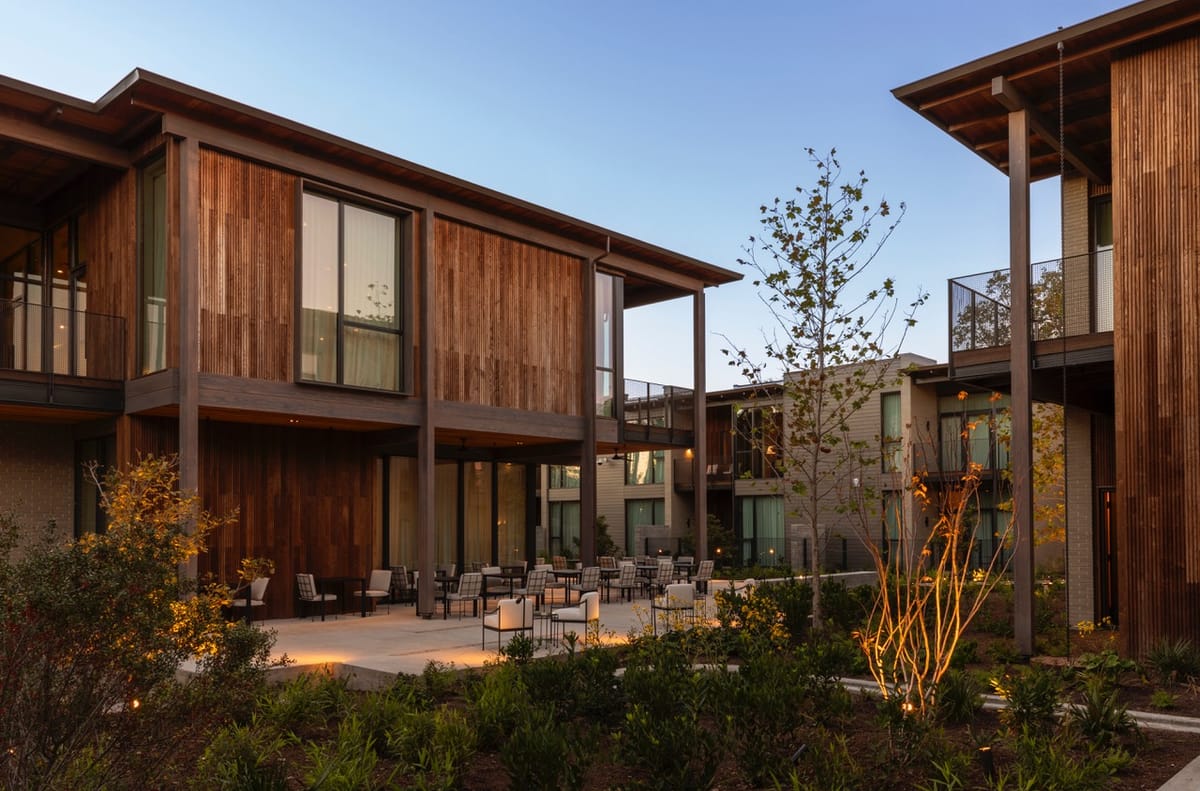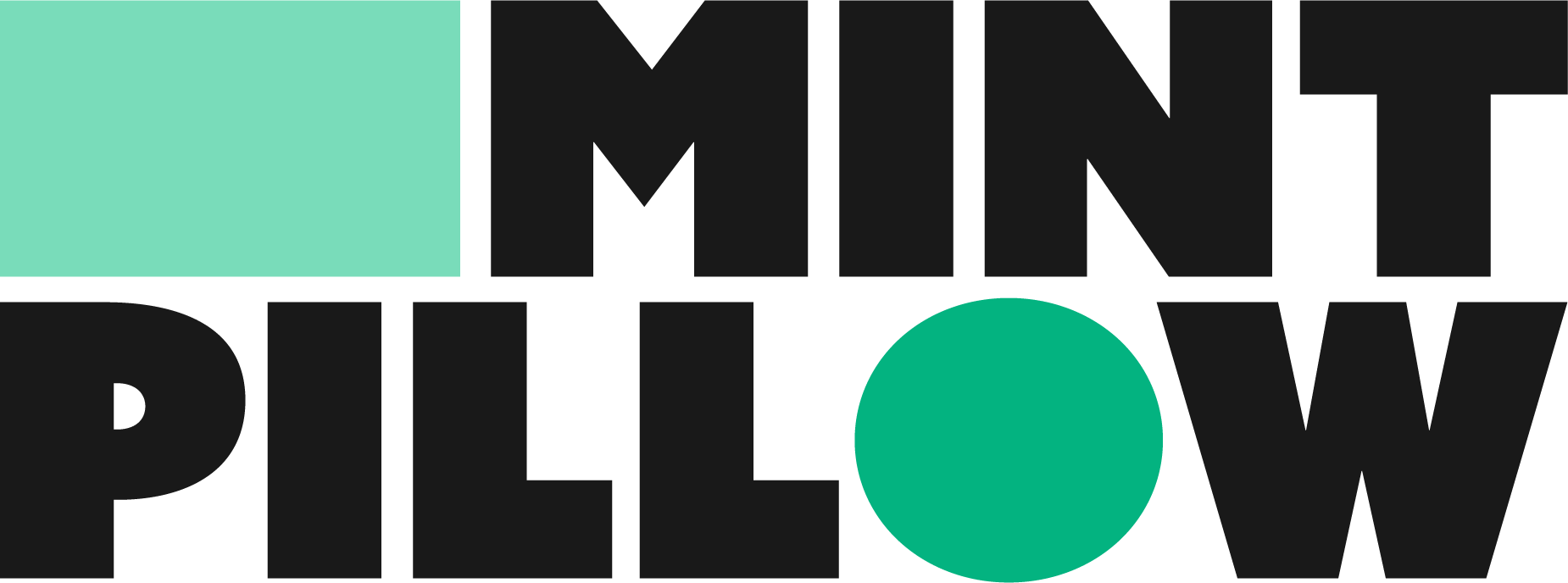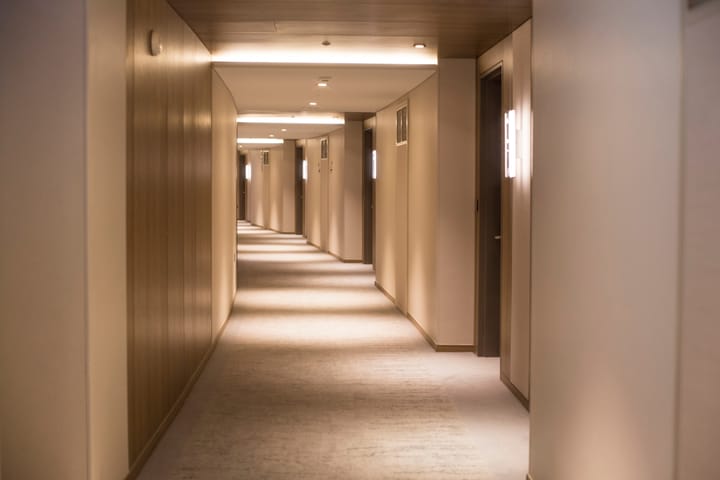Tech, tunes and junk fees
Plus: A swanky Bunkhouse property touches down in Houston | Funny bosses FTW

Tech, tunes and trust. Success in hospitality means embracing the right tech, tapping into emerging markets and creating strong workplace cultures. This week, we’re diving into the latest trends in property management systems—what’s new and what’s next? Plus, we’ll explore how data-driven insights can help you attract music tourists (yep, concerts and festivals can fill your rooms—just ask a Swiftie). We’re also talking humor—because a good laugh isn’t just good for morale; it builds trust and resilience among your team. Let’s make your hotel smarter, more profitable and a little more fun.

From ordinary to unforgettable. The secret to making someone feel special is not about extravagance or expense. Instead, concierge extraordinaire Sarah Dandashy shares how the key lies in disrupting expectations.
Adopting and adapting. From mobile-first management to dynamic pricing, AI-powered automation to real-time rate synchronization, here are 10 PMS tech trends to know.
Lifestyle love. High-design boutique hotels, glamping outposts, luxury all-inclusives... In 2025, the hotels you can book through loyalty programs look a lot different than in years past.
Travel with your senses. Data-informed insights, initiatives like the Fort Worth Music Office, and support for local artists are transforming this Texas city into a cultural hub through music-driven tourism.
We’re in a New York state of mind. According to new data from CoStar, the Big Apple and Music City are projected to open the most hotel rooms in 2025.

'Technology plays a critical role in reducing operational friction'
Niki Johnson is a technology trailblazer as the chief product officer for Otelier, where hospitality meets innovation. She specializes in blending tech, strategy and a deep understanding of guest experiences to create smarter, more profitable properties. Whether it’s optimizing operations, leveraging data or future-proofing businesses, she’s all about practical solutions with a forward-thinking edge. Here, she shares why tech is critical to the guest experience, why independent hotels have more flexibility to differentiate themselves in a sea of brands and why trusting her instincts is critical.
What excites you most about hospitality tech?
The convergence of data and innovation and what that means for productivity. At its core, hospitality is about delivering exceptional guest experiences, and technology plays a critical role in reducing operational friction. Automation allows teams to streamline processes, freeing them to focus on what truly matters: providing outstanding service. For example, a concierge can create meaningful guest interactions by leveraging both technology and personal expertise. As the industry continues to evolve, the potential to enhance these experiences through smart, data-driven solutions is more exciting than ever.
What’s the biggest tech challenge for independent hotels?
Remaining independent while competing without the advantages of a large brand. Major hotel brands benefit from economies of scale—they have sales and marketing engines with big budgets, loyalty programs that drive significant demand and access to technology at negotiated rates. One of the best ways for independents to differentiate themselves is by offering unique, authentic guest experiences that large brands often struggle to replicate. By integrating into their local neighborhoods, independent hotels can create a sense of place that feels personal and immersive. They also have more flexibility when it comes to packaging, bundling and marketing their offerings, allowing them to craft truly one-of-a-kind stays. Additionally, independents aren’t locked into brand-mandated technology, which means they can shop around for less costly solutions that best fit their needs.
What is one major challenge you have faced as you've advanced your career and how have you tackled it?
Recognizing when to make the jump from a supporting role to a leading role. This inflection point is critical in career growth and can feel uncomfortable, so often, we pause rather than act. One clear moment that comes to mind: Early in my career, as I was just starting to manage teams, I was in a role that was involved in everything, but not responsible for outcomes. After a couple of frustrating years in that role, I asked for a promotion in an area that was out of my wheelhouse, and it turned out well. But I had waited too long; that experience taught me to trust my instincts and act faster.
Have you encountered resistance or bias when introducing new tech solutions? How did you push through?
Introducing new technology almost always encounters some level of resistance. Sometimes as technologists, we get so excited about the new features or capabilities that are available, either in our own products or other products, that we forget about the human element and what really drives adoption of a new solution. Almost every user of hospitality tech solutions is already using a tool. When a new solution comes around, we’re not just introducing a tool that makes our users more productive or allows our clients to have more access to critical business data, we’re also introducing change. Navigating that change is probably the trickiest part of introducing new technology, and ignoring this is a common mistake. What I’ve learned is that it takes empathizing with your partners and being curious about their business processes and roll-out strategy. With this knowledge, you can not only help with adoption but improve product design, training and support materials, and help create an implementation process that focuses on adoption and use.


Destination of the Week: Hotel Saint Augustine
Location: Houston
Opened in: January 2025
Owned by: Bunkhouse Hotels, the boutique hospitality group—now part of the Hyatt lifestyle group—behind Hotel San José and Austin Motel in Austin, Hotel Havana in San Antonio and Hotel Genevieve in Louisville.
What to expect: Nestled in Montrose’s Museum Row, Hotel Saint Augustine blends contemporary design with a nod to Houston’s cultural heritage. The five low-rise buildings, designed by Lake|Flato Architects, span 2.2 acres and are connected by lush courtyards, winding pathways and open-air bridges. Interiors by Post Company incorporate rich textures, deep jewel tones and surrealist elements for an atmosphere that is equal parts striking and intimate. In keeping with Bunkhouse Hotels’ ethos of fostering community-driven experiences, Saint Augustine will celebrate Houston’s history and culture through special programming, partnerships and collaborations with local nonprofits.
Number of rooms: 71 guest rooms and suites, ranging from the Petite Queen to the Atelier King Suite with a private terrace and freestanding tub.
Dining options: Houston culinary heavyweights Aaron Bludorn and Cherif Mbodji curate the hotel’s food and beverage offerings. Augustine Lounge & Listening Room serves an all-day menu (think Wagyu hotdogs) alongside expertly crafted cocktails such as the mezcal-driven Coyote Call. Perseid, a Gulf Coast–meets-French bistro, highlights the city’s diverse culinary influences with dishes spanning crawfish sausage to duck frites.
What stands out: The circular courtyard pool, tucked within a secluded, foliage-filled enclave, offers a moment of escape. Stay tuned for Hotel Saint Augustine’s lobby retail shop, which will feature a thoughtfully curated selection of items that reflect Houston’s artistic spirit, from luxurious apothecary goods to handcrafted glassware and exclusive Bunkhouse-designed pieces.
Starting rate: $429
Above: Hotel Saint Augustine. (Courtesy of Bunkhouse Hotels)


Making a difference through design
Designers have the unique ability to architect emotion in tangible ways. Marrying brand to location and character to heritage, design industry leaders have a lot to say about the trends and projects they’re eagerly anticipating this year. The Palm House Luxury Hotel in Palm Beach opens after being shuttered for 17 years (the glam was worth the wait), while Barnard, Vermont’s Twin Farms Treehouses are cantilevered into the trees, 20 feet above ground, inspiring childhood frivolity and adventure.
Why it matters: Design can address environmental, lifestyle and locational impacts—elements that drive innovative new strategies within the marketplace. Make your hotel bucket list from the examples these designers divulge. (Hotel Investment Today)
Above: The Palm House Luxury Hotel. (Courtesy of The Palm House)

'Junk fee legislation' gains traction
The Hotel Fees Transparency Act was approved by the Senate Committee on Commerce, Science, and Transportation on Feb. 5 and is now on its way to the full Senate for review. The proposed law would create a national single standard for displays of hotel room fees across the lodging industry.
Why it matters: Transparency facilitates competition. Currently, transparency laws may vary by local and state law, and fees often come as a surprise (and frustration) to guests at check-in. Laura Chadwick, president & CEO of the Travel Technology Association (Travel Tech), says that the proposed measure would standardize pricing information available to consumers during the booking process. “This bill is so important because it sets one national definition for total service price," she adds. (Travel Pulse)

The surprising power of humor
Who knew that humor is a teachable skill? According to behavioral scientist Jennifer Aaker and corporate strategist Naomi Bagdonas, leaders with a good sense of humor are seen as 27% more motivating, and their teams are more bonded and creative.
Why it matters: Humor inspires trust. “When work gets serious and life gets busy, we become transactional,” says Aaker. “Small shifts are enough to move us from transactional to human.” Gravity and levity don’t need to be at odds. Humor has the capacity to shift people’s energy, making us feel more connected to others. (TED Conferences)

The economics of uncertainty
Determining where capital should flow is not an exact science. "The hospitality industry doesn’t wait for perfect economic forecasts to make moves. If it did, no hotel would ever change hands, no resort would ever be developed and no investor would ever place a bet on the future," says Michael Sheppard, senior associate at Paramount Lodging Advisors in Albuquerque, New Mexico. And yet, deals continue to get made.
Why it matters: You don’t need a fail-safe economic forecast to determine your next move (in fact, one might argue such a thing doesn’t even exist). "For hotel owners, developers and brokers, the lesson is clear: certainty is a luxury, but action is a necessity," Sheppard stresses. “The best in this industry don’t sit around waiting for a perfect forecast. They analyze, adapt, and move when they see opportunity.” (LinkedIn)
💯 Enjoying Mint Pillow? Share it with a friend.
👋 Have a story idea or want to say hello? Email us at newsletter@mintpillow.co




